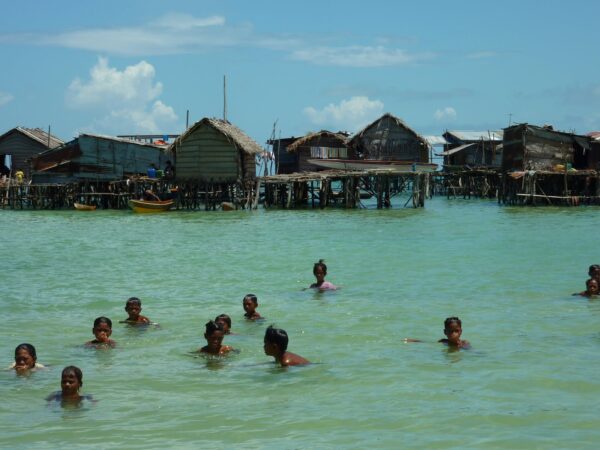In the heart of Southeast Asia, the Bajau people, also known as “sea nomads,” live in the clear waters of the Philippines, Malaysia and Indonesia. Estimated to number more than a million, these nomadic seafarers have fascinated scientists and explorers for centuries because of their remarkable diving skills.
What makes the Bajau region unique? How is it possible that they can dive up to 70 meters deep and stay underwater for up to 13 minutes without breathing, while ordinary humans struggle to hold their breath for more than 90 seconds? A recent study published in the journal Cell seeks to answer these questions, suggesting that Bajau may possess genetic adaptations that give them unusual resistance to hypoxia, a lack of oxygen.
Herawati Sudoyo, a geneticist at the Muktar Riyadi Institute for Nanotechnology (MRIN), who is leading a genetic study of this population, revealed that the Bajau have a high ability to tolerate hypoxia. According to Sudoyo, “These genetic characteristics make the Bajau people almost superhuman, allowing them to blend with water.”
But it is not only genetic modifications that allow the Bajau tribe to dominate the depths. Richard Moon of Duke University School of Medicine, who studies the human body's response to extreme heights and depths, noted that the Bajau people have unique rituals before diving. “Before diving, they start breathing very slowly, in a relaxation exercise that helps reduce their heart rate,” Moon explains.
Historical records also attest to the skills of the Bajau people. In the 16th century, Venetian explorer Antonio Pigafetta highlighted his diving skills in his book “Primo Viaggio Intorno al Globo Terracqueo.” Sergio Roldan Muñoz, a predoctoral researcher at CSIC, points out that the Bajau are an ethnic group from Southeast Asia, integrated into maritime nomadic groups that travel from island to island, living mainly in floating homes or coastal villages.
The Bajau's relationship with the sea is ancestral. They learned to dive from the age of three and remained traders for centuries, relying on fishing and pearl collecting to survive. Their knowledge of the oceans is so profound that it is believed that this ancestral knowledge is what saved them from the devastating 2004 tsunami, a disaster that claimed 260,000 lives in the region.
Melissa Lardo, one of the scientists involved in the study of the Bajau people, highlights that this group has evolved over the centuries, adapting to the marine environment and developing unique physical and physiological characteristics. “The Bajau have evolved to change their physiology, getting almost everything they need from the sea,” says Lardo, quoted by ABC.
A 2023 genetic study conducted by Sudoyo and his team analyzed 250 Bajau people in Waring, Indonesia, to better understand the genetic diversity of this community and deepen knowledge about sea nomadic populations. The results revealed that the Bajau have specific genes, such as PDE10A and BDKRB2, related to their diving abilities, although more research is needed to fully understand their effect.
The Bajau's ability to dive to great depths and remain underwater for long periods not only challenges human limits, but also provides valuable insights into human adaptation to extreme environments. Studying the Bajau could be the key to unraveling mysteries about modern human evolution and how populations can adapt and thrive in adverse conditions.

“Hardcore alcohol maven. Hipster-friendly analyst. Introvert. Devoted social media advocate.”


